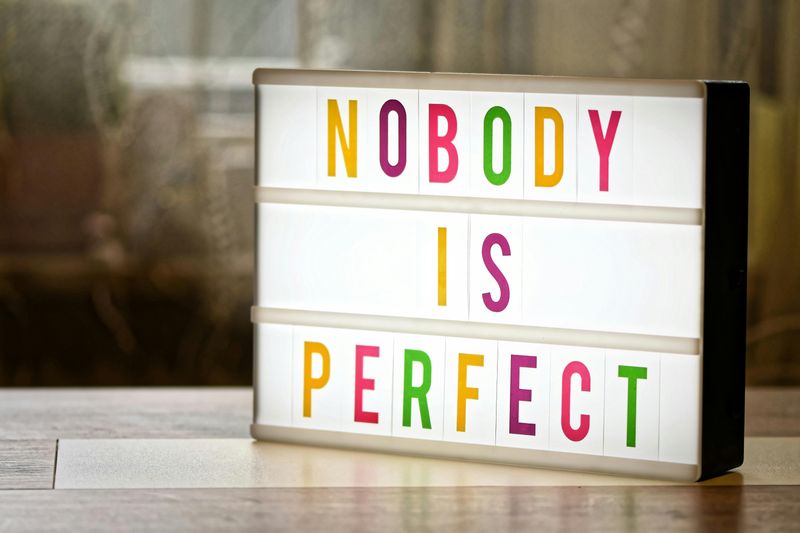Childhood experiences shape who we become as adults, especially when those experiences involve trauma. The scars from our early years often show up in our romantic relationships, friendships, and even how we parent. I’ve seen firsthand how unresolved childhood wounds can sabotage connection and intimacy. But here’s the good news; healing is possible, and understanding these patterns is the first step.
1. Fear of abandonment creates clingy behaviour

Children who were neglected or abandoned often develop a desperate need to cling to partners. I’ve watched friends turn into emotional octopuses, texting constantly and needing hourly reassurance that their relationship isn’t crumbling.
This suffocating grip usually pushes people away, creating the very abandonment they fear! Breaking this cycle means developing self-soothing techniques and building a solid internal foundation.
Try journaling when anxiety strikes instead of making that panicked call. Gradually, you’ll learn that temporary separation doesn’t equal abandonment.
2. Trust issues build invisible walls

When caregivers prove unreliable, children learn that people can’t be trusted. As adults, they construct emotional fortresses that keep potential love at arm’s length. I remember my own reluctance to share vulnerabilities, convinced everyone would eventually use them against me.
The path forward involves taking calculated risks. Start small – perhaps sharing a minor insecurity with a trusted friend – before scaling up to deeper revelations.
Each positive experience gradually rewires your brain, teaching it that not everyone will betray your trust.
3. Conflict avoidance stems from childhood chaos

Grew up walking on eggshells around volatile adults? You might now flee at the first sign of disagreement. Many trauma survivors associate conflict with danger rather than seeing it as a normal part of healthy relationships.
My client Sarah would literally hide in the bathroom during arguments with her husband, replicating her childhood strategy for surviving parental fights. Learning to stay present during disagreements takes practice and courage.
Role-playing potential conflicts with a therapist can help build the emotional muscles needed for constructive disagreement.
4. People-pleasing exhausts your authentic self

Children who had to earn love through performance often morph into adults who can’t say no. I spent years as a human pretzel, twisting myself into whatever shape would please others while completely losing sight of my own needs and desires.
This pattern leads to resentment, burnout, and relationships built on a foundation of falsehood. The antidote? Practice saying small nos before attempting bigger ones.
Perhaps decline that extra project at work or suggest a different restaurant than the one your friend suggested. Your authentic voice gets stronger with each use.
5. Emotional numbness blocks genuine connection

Shutting down feelings was once a brilliant survival strategy for unbearable childhood pain. Unfortunately, this emotional circuit breaker doesn’t discriminate – it blocks joy and love alongside hurt and anger.
Many trauma survivors describe feeling ’empty’ or ‘going through the motions’ in relationships. Reconnecting with emotions requires gentle persistence.
Try naming feelings as they arise without judgment. ‘I notice I’m feeling something in my chest when we talk about holidays.’ This mindful awareness gradually rebuilds your emotional vocabulary and capacity.
6. Perfectionism sabotages relationship satisfaction

Crikey, the impossible standards we set! When love was conditional in childhood, we learn to earn affection through flawless performance. My own marriage nearly collapsed under the weight of my unrealistic expectations – of myself and my partner.
This relentless pursuit of perfection creates a joyless relationship where neither person feels good enough. Breaking free requires embracing the beautiful mess of being human.
Start celebrating ‘good enough’ moments. Did you have an imperfect but genuine conversation? Brilliant! That’s actually the stuff of real intimacy.
7. Boundary confusion creates relationship chaos

Children whose boundaries were violated struggle to understand where they end and others begin. This murky territory leads to either fortress-like rigidity or no boundaries whatsoever.
My friend Tom swings between complete emotional isolation and losing himself entirely in relationships. Finding the middle ground means practicing healthy boundaries daily.
Start by noticing your physical boundaries – is it comfortable when someone stands this close? Then graduate to emotional boundaries – which topics feel safe to discuss with whom? This body-based awareness builds the foundation for healthier connections.
8. Attraction to familiar dysfunction perpetuates patterns

Ever noticed how you keep dating the same person in different packaging? Our brains are wired to seek the familiar, even when it’s painful. I’ve watched countless friends magnetically drawn to partners who recreate their childhood dynamics.
Breaking this cycle requires becoming conscious of these unconscious patterns. Make a list of your past relationships and look for themes – controlling behaviour, emotional unavailability, or chaos.
When dating someone new, ask trusted friends if they notice concerning similarities to your past. Sometimes outside perspective helps us see what we’re programmed to overlook.
9. Self-sabotage destroys promising connections

When things start going well, do you mysteriously find ways to blow it up? This maddening pattern stems from deep unworthiness beliefs formed in childhood. I call it the ‘happiness ceiling’ – the unconscious maximum amount of joy we believe we deserve.
One client consistently picked fights with partners right as the relationship deepened. Healing requires catching yourself in the act of sabotage.
Notice the uncomfortable feelings that arise when things are going well. Practice sitting with this discomfort rather than acting on the impulse to create familiar chaos. Gradually, your tolerance for happiness expands.
10. Reparenting yourself creates lasting healing

The most powerful healing comes from becoming the loving parent you needed as a child. This isn’t about blaming your actual parents but about taking responsibility for meeting your own needs now.
I keep a photo of my childhood self on my phone. When faced with challenges, I ask, ‘What would little Jessie need right now?’ Sometimes it’s comfort, sometimes structure, sometimes play.
This practice gradually rewires your nervous system, creating internal safety that makes healthy relationships possible. The wounded child within never disappears, but they can finally receive the love they’ve always deserved.